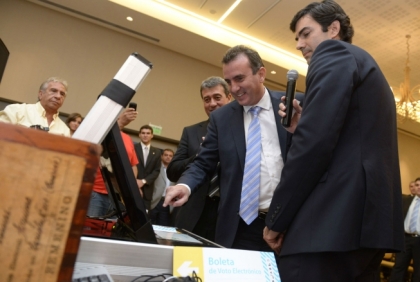Last October, two elections took place in Salta, Argentina: the primary, open, simultaneous, mandatory elections (PASO) that were held on October 6th and were automated, which determined the candidates for national posts; and on the 27th, legislative elections were carried out manually. What happened?
On October 6th, the elections were held with much announced e-voting logistics, and 60% of the voting registry attended the call. On the other side, 73% of the electoral registry voted during the manual election on October 27th.
For some, this is a clear indicator that Salta has been a bad experiment in terms of e-voting implementation. The National Senate for Salta, Sonia Escudero, explained that one of the deficiencies of the electronic voting system is that it is not adapted to the social reality of the locale. She states that, in order to vote with this specific kind of machines, one must be familiar with the use of computers. Province Deputy for the Saltan Front Javier David alerted the Electoral Court about the lack of training of the electorate and denounced the poor performance of the voting equipment the very day of the election.
In addition to these difficulties, the lack of experience from the provider became evident in the deficient technical training of the machine operators, who were not able to tackle contingencies the best way. Deputy David argued so by stating that when the machines stopped working and had to be replaced, the polling station authorities had no way to be sure that the malfunction didn’t affect or alter previously marked ballots in the machine.
In this respect, Teresa Ovejero, Secretary of the Salta Electoral Court, admitted to the lack of training not only of the citizens, but also of the technicians accompanying the session. She pointed out that the instructors themselves “informed that very few people attended the training sessions on Friday afternoon and all Saturday long.” The officer put part of the blame on Magic Software, the technology provider. The main consequence of these events is the unfortunate appreciation of manual voting as an ideal suffrage method in times when electoral commissions around the world do not hesitate to implement some sort of technology in their processes. In light of this setback, the problem is not caused by the people of Salta, but by a deficient technology that was incorrectly applied.
One of the guarantees that must be provided by a technology provider during an election is mainly the overcoming of problems typical of manual voting, such as delays and long lines. Besides, e-voting must offer speed, reliability, and veracity, among other benefits. In fact, there are positive examples in the region, such as Brazil and Venezuela, both of which had participation rates of up to 80% during their past presidential elections.

